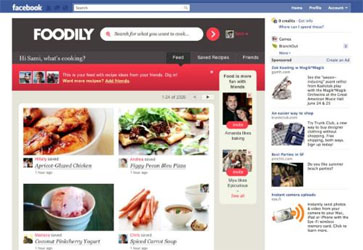But Why Don’t You Pay for Using Facebook?
By Rakesh Raman
Recent reports reveal that now over 500 million users are connected with Facebook. Most people will think this is some kind of achievement for the social networking site. But probably Facebook must be spending sleepless nights under the increasing weight of this crowd.
Why?
All these users are just squatting on Facebook property without paying for the real estate they use. And if Facebook keeps running its business like a charity, its free service to users will emerge as the main cause for its debacle. But why should Facebook charge for its service?
Here are the 5 reasons:
1. Commercial Service: Initially, as part of its promotional campaign, Facebook would have started its business as a free service just to attract some fresh eyeballs, as the online social networking concept was totally new in 2004.
However, if now millions of people are using it then that means Facebook has become a utility for consumers from mere a free service. And when consumers are paying for other utility services like phone, electricity, water, cable, and so on, then why not for Facebook?
Now, it’s time for the company to run this social service as a commercial service.
2. Content: No doubt, a collaborative web-based property like Facebook can rely on the user-generated content (UGC). However, the quality of UGC flowing on the network is pathetic. The freewheeling nature of the social network is mostly generating content that stinks for serious users.
Today, the content that flows on the network is mainly some meaningless posts that range from a pet’s ailment to some loose comments on obscene pictures to lifted quotes from here and there, and all sorts of slangs.
Another form of content appears as Pages or Group posts. Many users only become fans or members of these formats but actually they’ve nothing to contribute. The creators of these pages often spam others with requests to join them. And it’s very difficult to get rid of those forced “Event invitations,” “Group invitations,” and “Page suggestions” because of Facebook’s architecture.
People who send these unsolicited invitations to others don’t understand even a bit of social media optimization work. They’re just novices for whom sending requests is nothing but a gameplay in the online space. (Read: 10 Reasons Why Social Media Doesn’t Help)
But in the process, Facebook has virtually become an information junkyard.
Paid service will help Facebook get rid of uncultured users from its site and, in turn, get quality content from serious users. Facebook can even start its own content streams (instead of today’s free Pages and Groups) to provide quality information to users and value for their money to advertisers.
3. Tech Optimization: Loads of junk bytes thrown on the network by users are putting a lot of avoidable burden on Facebook’s tech resources, making it highly vulnerable and unreliable.
To tame such users, Facebook can split its bill in two parts – fixed monthly subscription and variable charges depending on the usage, like most telecom companies do.
Plus, on the lines of mobile phone companies, Facebook can develop a differentiated pricing model, targeting corporate and individual users separately. With these revenues, it can plan its investment on tech infrastructure, allowing it to optimally manage its backend tech resources.
That will also be good for users, as they’ll get smooth service as opposed to today’s tardy response from Facebook servers.
4. Socio-commercial Culture: It’s observed that among the current categories of users are idle housewives, retired people, study-averse students, jobless pros, and shirkers in offices. They use Facebook for some freewheeling chat and amateur, meaningless messaging.
While Facebook wants to connect its users with their families and friends, it’s inadvertently promoting an uncivilized culture, as its use has reached a level of addiction where family members are neglecting their responsibilities, students their studies, and workers their duties. As a result, there is also a huge manpower productivity loss across the world. (Read: 10 Deadly FAD Symptoms)
While Facebook uses the term “Friends” for users, actually they’re not friends. They’re, in fact, only some virtual links who are not professionally or emotionally attached with each other.
By asking people to pay, Facebook can actually promote interest-based relationships that will be good for Facebook as well as the society, in general.
5. Advertisers’ Interest: In the absence of discipline on Facebook, it can’t earn much from advertisers because online ad options are supposed to be based on performance (like number of ad clicks by the consumers, number of leads, or actual buying).
Only content quality and relevance can attract serious users or potential consumers to the ads. That will be possible only when Facebook could offer some value-for-money proposition to the visitors to its site. And no attraction can be bigger than the attraction of content. The ad revenues will automatically gain momentum, as paid users are expected to be serious consumers.
On the other hand, users are mistaken if they think that they’ll switch network and join another free service. In today’s competitive environment, market forces determine the flow of any commercial activity. If the other service, say MySpace, becomes as popular as Facebook then that will also start charging.
It’ll be difficult for users to keep running from one social network to another because they’ll simply lose their previous identities and links with other users. Then social networking will have no meaning at all.
Now, Facebook must realize that if it has to find its financial feet in the slow-moving online marketplace, it’d have to woo some consumers who are ready to pay for its social networking services. Only those consumers will be really interested in the brands that would advertise on it. Free-type users are just adding more suffocation to the already crowded network.
Clearly, Facebook is more popular than many other me-too rivals. Now, it must use the art of translating popularity into profits and start selling its service without any further delay.
The sooner the better.
By Rakesh Raman, the managing editor of Raman Media Network.






